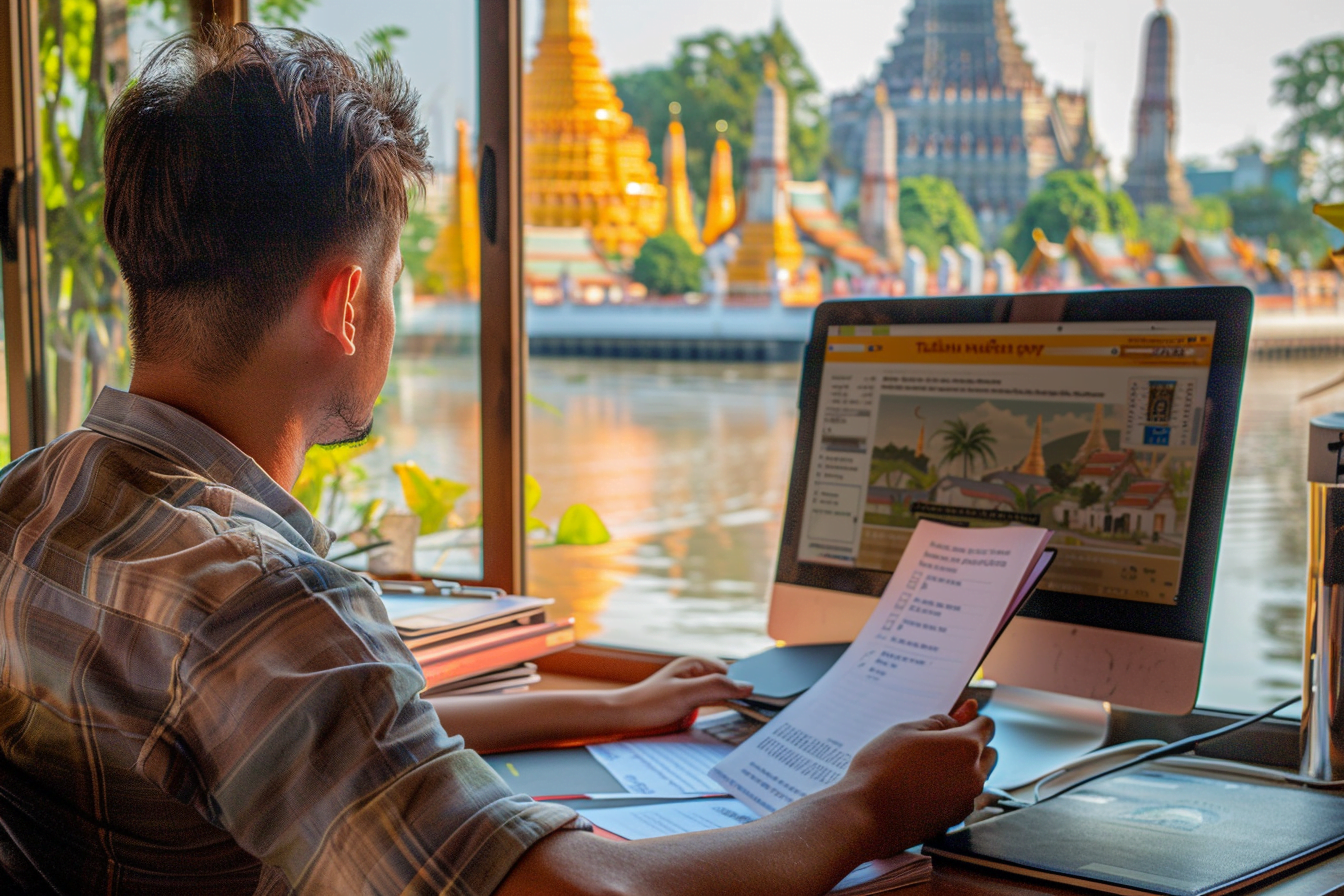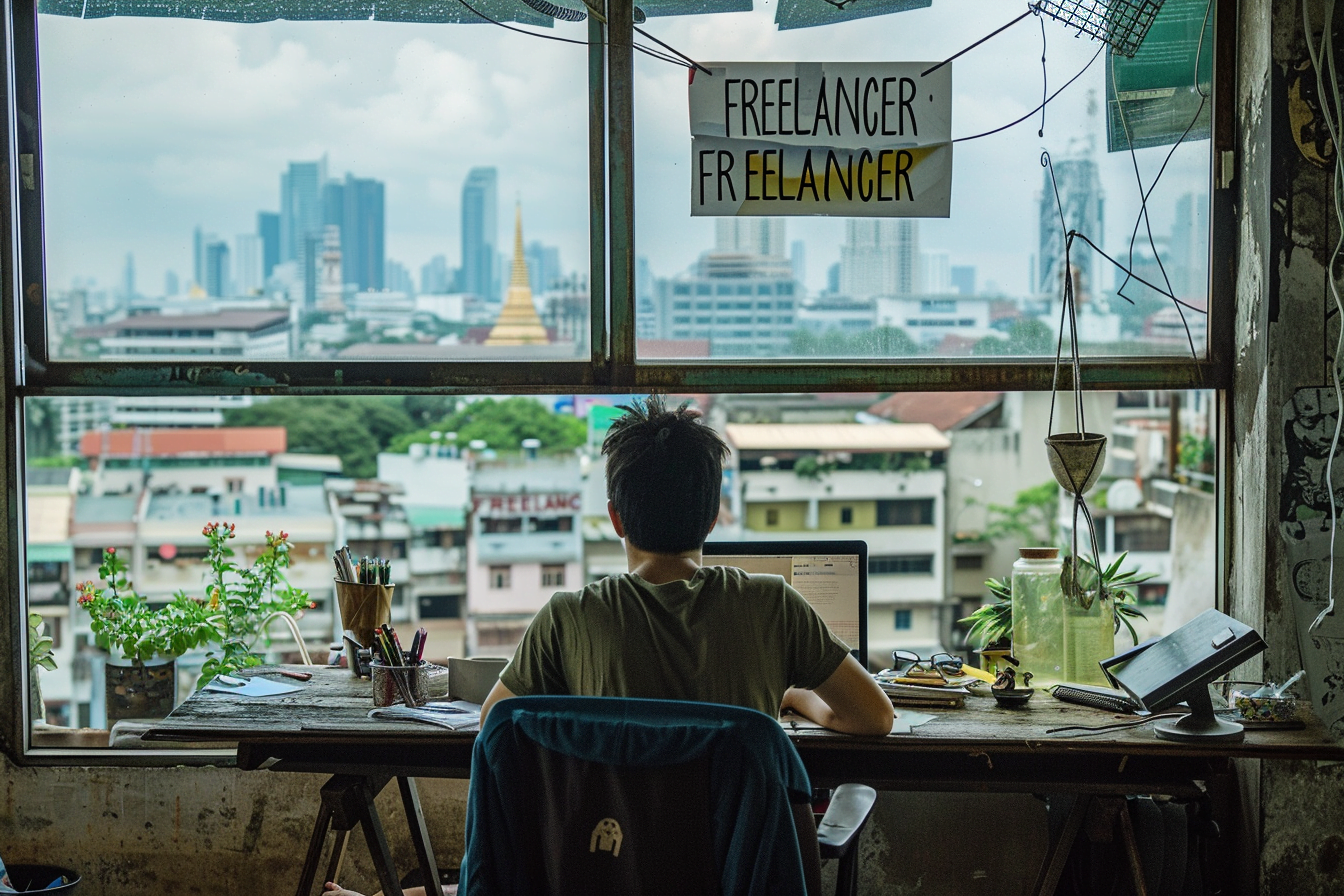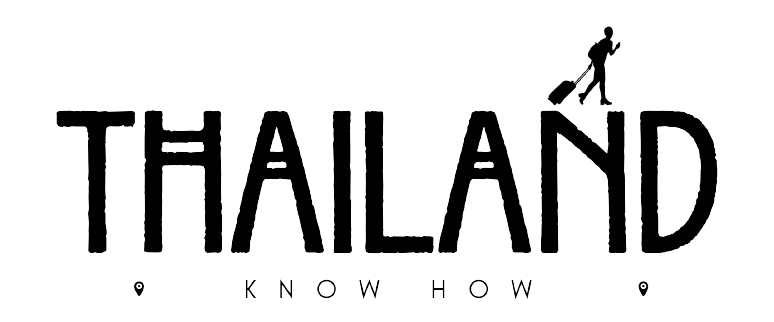Explore the essential work visa requirements for freelancers in Thailand. Navigate the legal guidelines to legally work and thrive!
Every year, thousands of digital nomads flock to Thailand, lured by its pristine beaches and vibrant culture. Yet, a startling number may not be aware that as of 2022, Thailand does not offer a specific visa for freelancers such as a digital nomad visa. It’s a surprising twist in the narrative of the country as a haven for global remote workers. For those enchanted by the prospect of tapping away at their keyboards against the backdrop of a Thai sunset, understanding the work visa requirements for freelancers in Thailand is more than just red tape—it’s a necessity safeguarding their tropical dream from turning into a legal nightmare.
The allure of the Land of Smiles is undeniable, but the repercussions of conducting business without legal permits are serious and could lead to more than just a slap on the wrist. With such high stakes, freelancers considering the move need to navigate the complexities of securing a Thailand work visa for freelancers with precision. While the golden sands are inviting, it’s crucial to ground oneself in the realities of Thailand freelancer visa requirements before taking the plunge into this sun-kissed paradise.
Key Takeaways
- Thailand does not currently have a visa specifically for digital nomads or remote workers, making traditional work visas a necessity.
- Engaging in any form of work, including freelancing without a proper visa or work permit, is illegal and can result in serious consequences.
- A thorough understanding of visa and work permit options is imperative for freelancers who wish to work legally in the country.
- Options available include the Thai Work Visa, SMART Visa, and Elite Visa, each with their own set of requirements and benefits.
- Despite the absence of a freelancer-specific visa, Thailand remains a highly sought-after destination for global freelancers and digital nomads.
Understanding Thai Visa and Work Permit Regulations
As Thailand becomes an increasingly popular destination for global freelancers, it is imperative to understand the intricacies of obtaining a work permit for freelancers in Thailand. The legal landscape regarding visa requirements for freelancing in Thailand mandates a close examination of the rules to ensure compliance. Below, we delve into the importance of securing proper documentation, the legal ramifications of working without it, and the different categories that are eligible for work permits.
The Necessity of Work Permits for Foreign Workers in Thailand
Engaging in any form of gainful employment in Thailand, including freelance activities, requires foreigners to have a valid work permit. This permit is a legal prerequisite that serves as proof of one’s eligibility to undertake work within the country. It must complement the appropriate visa, creating a duo that legitimizes one’s professional endeavors on Thai soil. Those considering freelance work must secure this documentation to operate within the bounds of Thai law.
Legal Implications of Freelancing Without Proper Documentation
Failing to procure a freelance work permit in Thailand can lead to significant legal complications. The extent of freelancing activity that necessitates a work permit is broad, taking into account not only the physical labor but intellectual and creative efforts as well. Foreign nationals found in violation of these rules may face fines, visa cancellation, or even deportation. It is, therefore, essential to obtain and maintain the appropriate work permit and visa status to safeguard against such outcomes.
Categories Eligible for Work in Thailand
Foreign workers considering Thailand as their freelancing hub have various visa options to explore. Each category, from the Thai Work Visa to the SMART Visa and Elite Visa, corresponds to specific professional criteria and has its own set of legal procedures to follow. These visas cater to a wide range of professionals, provided that they meet the eligibility requirements and understand the importance of pairing these visas with a legitimate work permit.
- Thai Work Visa: Issued to those with a job offer from a Thai employer and requires a work permit application.
- SMART Visa: Designed for high-skilled professionals, investors, and startups, with varied validity and may waive the work permit requirement.
- Elite Visa: Aimed at affluent individuals looking to reside in Thailand for longer periods, though it does not inherently provide a work permit.
The process of navigating the visa requirements for freelancing in Thailand is both nuanced and strictly regulated. Prospective freelancers should meticulously evaluate their eligibility and adhere to the legal steps required to cement their working status in Thailand.
Exploring Visa Options for Freelancers in Thailand
For freelancers looking to embrace the vibrant culture and inviting climates of Thailand, understanding the visa options for freelancers in Thailand is a crucial step. While a dedicated digital nomad visa is not available, there are established avenues that allow for legal work within the country.
The Thai Work Visa and Work Permit combination is a traditional route for freelancers to legally conduct business within Thailand. Valid for one year and renewable, this visa requires freelancers to have a form of employment or company sponsorship within the country. Satisfying the Thailand freelancer work visa requirements entails a clear alignment of one’s professional activities with Thai regulations.
For those who meet specific professional standards, the Thai SMART Visa presents a novel solution. Geared towards highly-skilled professionals, this visa not only varies in validity from one to four years but also relieves the holder of the need for a typical work permit.
| Visa Option | Validity | Unique Benefit |
|---|---|---|
| Thai Work Visa | 1 year (Renewable) | Permits legal employment |
| Thai SMART Visa | 1-4 years | No work permit required |
| Thai Elite Visa | 5-20 years | Long-stay, premium services |
In contrast, the Thai Elite Visa, while not explicitly designed for freelancers, is more suited to those looking to extend their business presence internationally from a base in Thailand. It accommodates long-stay with a variety of premium services but does not, in itself, authorize work activity. Obtaining a Thailand work permit for freelancers might be an additional step if active income generation in-country is desired.
Each of these visa options caters to different professional profiles and requires careful consideration of one’s plans and potential in Thailand. While the path may not be as straightforward for freelancers without traditional employment, these regulations ensure the interests of both Thailand’s workforce and those who wish to contribute to its economy from a freelance capacity are protected.
Navigating Thailand’s Work Visa Application Process
For freelancers looking to explore the professional landscape of Thailand, understanding the intricacies of the local immigration process is essential. Securing a Thailand work visa for freelancers involves a series of defined steps and compliances, beginning with pinpointing the correct paperwork and ending with the successful renewal or extension of visas and work permits.
Documents and Eligibility Criteria for Work Visa Applicants
To initiate the Thailand work permit for freelancers application process, a comprehensive collection of documentation is mandatory. This includes a current passport with validity extending beyond the intended period of stay, proof of professional skills or business operations, and a contract or letter from a Thai sponsor or company. Additionally, ensuring that the purpose of your stay aligns with the stipulations required by a freelance work permit in Thailand is indispensable for approval.
Procedure for Securing a Thai Work Permit
The protocol for obtaining a work permit commences with securing an initial visa, usually a non-immigrant visa, which a freelance individual must obtain prior to entering Thailand. The next pivotal step is to find a Thai company or employer that will sponsor the work permit application. It’s not a process freelancers can embark upon in isolation; a Thai entity’s direct sponsorship is a critical component. Once the potential freelancer has entered Thailand, the host company must then file for the work permit, with further bureaucracy entailing the submission of required documents, including the freelancer’s proof of financial support.
Renewal and Extension of Visas and Work Permits
Visas and work permits are not indefinite passes and they often necessitate timely renewal. This involves not only a repetition of some elements of the original application process but also confirming that no conditions of the freelancer’s employment status or purpose in Thailand have changed. Compliance is key, as maintaining legal status bears significant implication for future work and residence in the country.
Understanding and adhering to the visa and work permit regulations in Thailand not only ensures a seamless professional tenure but also upholds the respect for local laws which govern foreign employment. This can pave the way for a rewarding freelance career in Thailand.
| Visa Type | Validity Period | Application Requirement | Renewal Process |
|---|---|---|---|
| Non-immigrant Visa (Work) | 1 Year | Passport, sponsor letter, proof of finances | Application submitted prior to expiry |
| SMART Visa | 1-4 Years | Skill verification, yearly fee | Renewal 60 days before expiration |
| Thai Elite Visa | 5-20 Years | Financial investment documentation | Based on chosen package terms |

Why Thailand Attracts Freelancers and Digital Nomads
Thailand stands out as a top destination for freelancers and digital nomads worldwide. Its irresistible combination of cultural richness, natural beauty, and modern amenities beckons those seeking a balance between work and leisure. This Southeast Asian haven is not just about picturesque landscapes; it’s also a hub where expatriates find both the comforts of home and the thrill of the exotic.
Cost of Living and Quality of Life in Thailand
One of the most compelling reasons to consider Thailand as a freelancer or digital nomad is the affordability of its living costs. Accommodation, food, and transportation are significantly cheaper compared to Western standards, yet the quality of life is by no means compromised. Whether seeking a vibrant cityscape or a serene beachside retreat, Thailand offers an array of choices that don’t break the bank.

In tandem with the cost-effectiveness, the high quality of life is a major draw. Healthcare services are both accessible and top-notch, public transportation is efficient, and there are endless opportunities for cultural immersion, from street food tours to temple visits. Moreover, for those moving to start a business or freelance remotely, vital resources such as fast internet and co-working spaces are readily available.
Safety and Community Support for Expatriates
The feeling of safety in Thailand is a strong factor in its attractiveness, with low crime rates even in metropolitan areas. Beyond the safety aspect, there is an invaluable sense of community among expatriates and digital nomads. Such support systems are essential for adaptation and networking, offering a safety net for both personal and professional needs.
While Thailand continues to draw freelancers and digital nomads with its vibrant lifestyle and supportive community, it’s important for those contemplating a move to be aware of the Thailand freelancer visa requirements. Understanding the visa requirements for freelancing in Thailand is essential to ensure legal residence and working status, ensuring peace of mind to fully enjoy the perks of life in this tropical paradise.
The Reality of Freelancing Legally in Thailand
For many considering a move to Thailand, the dream of freelancing amidst its tropical landscape is tantalizing. However, understanding the Thailand freelancer work visa requirements is key to embarking on this journey with legal fortitude. Freelancing internationally from Thailand involves nuances that can impact one’s legal status within the country. Specifically, Thailand’s authorities may distinguish certain activities as work based on whether it involves exerting effort, applying expertise, or generating output. Consequently, even digital freelancers must be aware that engaging with Thai-based clients or projects may necessitate a freelance work visa.

It’s crucial for freelancers to carefully assess their scope of work. While the global nature of many digital freelance professions permits a certain degree of flexibility, activities perceived as competing with local employment or exploiting Thailand’s resources could prompt legal scrutiny. Digital nomads in Thailand often navigate a grey area wherein they perform work that may not explicitly require permits, given its international clientele. Nevertheless, this is a dynamic landscape where the legal framework is subject to evolve, making it essential for freelancers to stay informed and compliant.
As experts note, “Staying on the right side of the law in Thailand as a freelancer not only secures your livelihood but also reinforces the integrity of the digital nomad community.”
While navigating this terrain, freelancers should weigh the potential risks of operating without the recommended permits. The freelance work visa Thailand route may present an upfront investment, but it’s a measure that ensures peace of mind and establishes a legitimate presence. This approach safeguards against any unexpected shifts in enforcement or legal interpretations that may arise.
The bottom line is that freelancers should not assume leniency or forgiveness in legal matters. By obtaining the proper work visa, freelancers in Thailand can focus on what they do best—leveraging their skills in a landscape ripe with opportunity, all while enjoying the vibrant lifestyle that Thailand has to offer.
Thailand’s SMART Visa and Its Benefits for Skilled Workers
Thailand has been at the forefront of attracting skilled professionals and freelancers from around the globe, especially with the introduction of the Thailand SMART Visa. This innovative visa provides a pathway for high-level professionals looking to contribute to Thailand’s industries, particularly in areas earmarked for growth and technological advancement.
Freelancers who can leverage their expertise within these sectors will find the SMART Visa to be a significant boon, as it offers a unique blend of perks and advantages.
Qualification Criteria for SMART Visa Applicants
In order to qualify for the Thailand SMART Visa, applicants must fit into one of the targeted categories, which include talented and highly skilled individuals, investors, executives, and startup entrepreneurs. Each of these categories has specific criteria to meet, including but not limited to, educational qualifications, income levels, investment amounts, and employment positions held in key sectors as recognized by the Thai government.
Benefits and Exemptions Offered by the SMART Visa Program
The Thailand SMART Visa stands out in several ways, particularly by offering exemptions from the traditional work permit process for freelancers in Thailand. Holders benefit from the ability to stay for up to four years, depending on the visa type, with the option to extend this period. Additionally, this visa offers multiple-entry benefits and includes privileges for the visa holder’s family. With an annual fee of just 10,000 Thai Baht, the SMART Visa eliminates some of the red tape typically encountered when securing a work permit for freelancers in Thailand.
This strategic program underscores Thailand’s commitment to innovation and its inclusive approach to welcoming global talent. For those meeting the stipulated criteria, it presents an opportunity to engage in work across Thailand’s emerging sectors, fostering a professional environment that’s as rewarding as it is dynamic.
Conclusion
The kaleidoscopic charm of Thailand attracts many freelancers longing to weave work with the enchanting threads of an expatriate life. Yet, it is paramount for these modern professionals to rigorously adhere to the work visa requirements for freelancers in Thailand to ensure their dreams don’t unravel under legal scrutiny. The absence of a specialized digital nomad visa mandates a close examination of alternatives such as the Thai Work Visa, SMART Visa, and Elite Visa, each serving different needs and durations of stay.
While the Thailand freelancer visa requirements may seem daunting at first glance, they serve as the necessary scaffolding for a stable and worry-free professional existence in the country. It is an unavoidable labyrinth that one must navigate to reap the full spectrum of cultural and professional opportunities that Thailand has to offer. Securing a work permit for freelancers in Thailand is not merely a bureaucratic formality; it is the foundation upon which the legitimacy of one’s freelance enterprise is built.
Looking to the horizon, vigilance and agility are vital as laws and policies could shift, impacting the legal contours of freelance work. To flourish in Thailand’s dynamic environment, freelancers should remain vigilant of legislative evolutions and steadfast in fulfilling legal mandates. Those who do will capture the essence of Thailand’s vibrant lifestyle, all while nurturing their entrepreneurial spirit within the embrace of legal compliance.
FAQ
Are there specific work visa requirements for freelancers in Thailand?
Yes, to legally work as a freelancer in Thailand, you must obtain a valid work visa and corresponding work permit. There is no specific “freelancer” visa; however, visas such as the Thai Work Visa, SMART Visa, and Elite Visa may be applicable depending on your situation.
Can foreign workers freelance in Thailand without a work permit?
No, it is illegal for foreign individuals to work, including freelancing, without a work permit in Thailand. Doing so can lead to legal issues such as fines, imprisonment, or deportation.
Who is eligible for work in Thailand under the SMART Visa program?
The SMART Visa program is designed for skilled professionals, investors, executives, start-up entrepreneurs, and dependents of SMART visa holders who meet specific qualifications and contribute to Thailand’s targeted industries.
What are the visa options for freelancers in Thailand?
Freelancers in Thailand typically look towards the Thai Work Visa, the SMART Visa, and the Thai Elite Visa. The right visa option depends on the individual’s qualifications, the nature of their work, and their financial status.
What documents are required for a Thai Work Visa application?
The application generally requires a valid passport, proof of employment or business operations in Thailand, and evidence of financial means to support your stay. The exact documents may vary depending on the specific visa category and the applicant’s circumstances.
What is the procedure for securing a Thai work permit?
A Thai employer must typically sponsor the work permit application. Documents such as a non-immigrant visa, proof of address in Thailand, and educational certificates are often required. The Department of Employment in Thailand reviews and approves the application.
How can visas and work permits in Thailand be renewed or extended?
Renewal or extension of visas and work permits in Thailand involves submitting the necessary documents to the Immigration Bureau or Department of Employment before the existing permits expire. Each visa type has its own specific renewal conditions and timelines.
Why is Thailand an attractive destination for freelancers and digital nomads?
Thailand offers a high quality of life with a relatively low cost of living, a welcoming community for expatriates, good healthcare, vibrant culture, and a favorable climate. These aspects make it appealing for freelancers and digital nomads seeking a comfortable lifestyle abroad.
What are the safety and community support like for expatriates in Thailand?
Thailand is known for its safety and has a strong and supportive expatriate community, offering networking opportunities, co-working spaces, and social groups that cater to the needs of foreigners living in the country.
What does legally freelancing in Thailand entail?
Legal freelancing in Thailand entails having a proper visa and a work permit. Freelancers must adhere to Thai laws and regulations, which include not competing with local businesses or taking jobs from local residents without the necessary documentation.
What are the benefits of the SMART Visa program for freelancers?
The SMART Visa program benefits qualified freelancers by offering an exemption from the regular work permit requirement and provides a stay of one to four years, renewable depending on continued eligibility. It’s aimed at those in the scientific, technical, or start-up sectors.
How do I apply for a SMART Visa and what are the benefits offered?
To apply for a SMART Visa, you must meet the specific criteria set by the Thai government and submit your application along with the required documents. Benefits include longer stay options, exemption from a traditional work permit, and freedom to travel in and out of Thailand.






Leave a reply